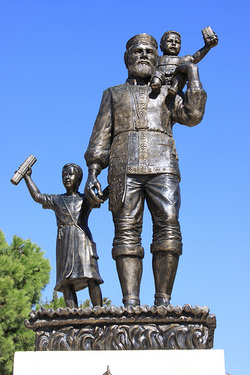
God delights in kindness, justice and righteousness. None of this is easy for us to believe.
Kindness is difficult for some of us to imagine because we do not have extensive personal experience with kindness. We can imagine God as a weak, codependent, ineffective being whose specialty is being relentlessly nice to people.
But what of the God who exercises kindness? What would that look like?
Justice is difficult for some of us to imagine because we have not had extensive personal experience with justice. In dysfunctional families justice is either chaotic or completely absent.
But what of the God who exercises justice? What would that look like?
Righteousness is difficult for some of us to imagine because we have not had extensive personal experience with righteousness. We do not have instincts for doing what is right, we do not delight in doing righteousness, we expect it to be boring, dreary and out-of-date. We may delight in caretaking and codependent niceness, but is that the same as delighting in righteousness? Probably not.
So, what of the God who exercises righteousness. What would that look like?
God is capable of delight. God is not the Unmoved One. God is the Most Moved of us all.
God's compassion and kindness are free and full.
God's commitment to justice is beyond all our imaginations.
God pursues righteousness.
Learning to share in God's struggle for kindness, justice and righteousness will require significant changes for us. It cannot be done in a one time event. It will be a life-time quest. We will forget and remember again. We will run away and come back again. But each day in the struggle we will grow in our capacity for delight. Until, in the end, when God's purposes are complete, we will be filled with delight at the triumph of God's kindness, justice and righteousness
God of kindness, I want to understand you better.
God of justice, I want to live in solidarity with you.
God of righteousness, help me to delight in what pleases you.
Increase my capacity for delight, Lord.
Let me discover you afresh today.
Amen.
Copyright Dale and Juanita Ryan
National Association for Christian Recovery









 RSS Feed
RSS Feed